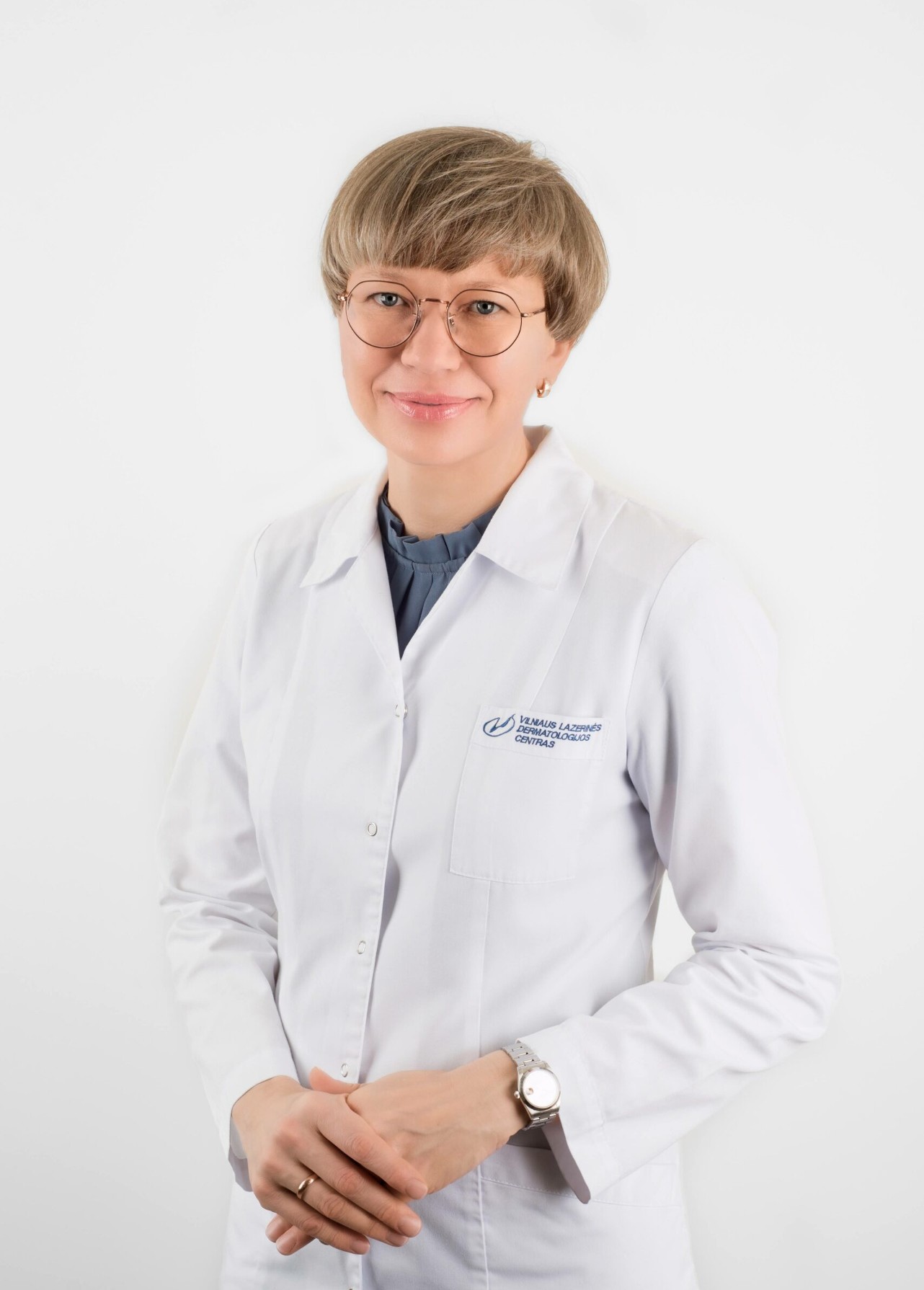Toenail fungus (med. onychomycosis) is an infectious, fungal disease that affects the nail plate. Unfortunately, this disease is easily contagious and spreads quickly from one nail to the other, which not only detracts from the aesthetic appearance of the nail but can also lead to health problems. If nail fungus is left untreated, the disease can be complicated by the spread of the fungus to adjacent areas of the skin or by a bacterial infection such as ringworm.
Even nowadays, the treatment of nail fungus is often a challenge for both the doctor and the patient. Medical treatment (topical and systemic) does not offer a 100% guarantee of recovery. Often, medication has to be administered over a long period of time, which increases the likelihood of adverse reactions. The treatment of nail fungus is a long and complex process and patients do not always adhere to the prescribed treatment regimen. All this increases the likelihood of recurrence of infection.
The main methods of treating nail fungus are:
- Medicinal treatment: topical and systemic
- Laser treatment
- Photodynamic therapy
- Surgical removal of the nail plate
- Combined treatment with the above methods
- Disinfection – prevention of nail fungus recurrence
The medical treatment of nail fungus is divided into topical and systemic. Topical treatments include special creams and nail varnishes containing antifungal drugs. Systemic treatment consists of oral antifungal drugs in the form of capsules or tablets. Antifungal drug therapy is the cornerstone of nail fungus treatment. However, even medication does not guarantee a quick and complete recovery.

Systemic antifungal therapy has its advantages and disadvantages. The medication reaches the nail plate with a sufficient concentration of the active substance (compared to topical agents), which kills the fungus. However, these drugs also have a higher likelihood of adverse reactions and may interact with other drugs the patient is taking. The potential liver and kidney toxicity of oral drugs is one of the main problems encountered in the treatment of nail fungus. Therefore, systemic drug therapy is only prescribed after certain tests (complete blood count, complete urinalysis, liver and kidney parameters) and an assessment of the internal organs. These drugs are usually prescribed for a long course, so the above tests should be repeated regularly, at least every 4 to 6 weeks.
Topical antifungals are a range of creams, solutions and nail varnishes that contain antifungal agents and act on the surface of the skin. Topical products have very limited efficacy. The nail plate is quite thick, so the drugs do not penetrate deeply enough to produce the necessary concentration of the drug in the nail to kill the fungus. Thus, in most cases, topical treatments cannot cure nail fungus. However, topical treatment of nail fungus has been successfully combined with other treatment methods such as laser therapy.
Surgical treatment of nail fungus – https://www.lazeriniscentras.lt/lt/paslaugos/nagu-grybelio-chirurginis-gydymas
Photodynamic therapy (FDT) – https://www.lazeriniscentras.lt/lt/fotodinamine-terapija-alternatyvus-neinvazinis-vietinis-gydymo-budas-nagu-grybui-gydyti
Laser treatment of nail fungus – https://www.lazeriniscentras.lt/lt/paslaugos/nagu-grybelio-gydymas-lazeriu
The Laser Dermatology Centre was the first in Lithuania to offer its patients laser treatment for nail fungus on the hands and feet. The procedure is simple, painless and lasts from 20 minutes to 1 hour (depending on the number of nails affected). According to studies, laser treatment of nail fungus outperforms other treatment methods in terms of effectiveness.
Advantages of laser nail fungus treatment:
- Safe. The laser beam destroys the mycelia and hyphae of the fungus without damaging healthy tissue. In addition, there are no toxic effects on internal organs.
- Effective. The fungicidal (i.e. fungus-killing) effect is already visible after the first treatment. The final result can be assessed after 6-12 months (the time it takes for a healthy nail plate to grow back).
- Painless. The laser treatment does not require pain medication.
- Fast. Usually 3 treatments are enough. The procedure is performed 1 time per month.
- Convenient. The procedure is quick and takes only a few minutes. After the procedure, the patient remains fit for work, without having to restrict daily activities.
A dermatologist should be consulted if laser treatment of nail fungus is indicated. During the consultation, your general condition, nail lesions and test results will be assessed. Based on these findings, the doctor will draw up an individual treatment and procedure plan.
In some cases, especially in the case of complete damage to the nail plate or in the case of multiple nails, a combined treatment such as medication and laser treatment is prescribed. This increases the chance of recovery.
Disinfection is equally important in the treatment of nail fungus. This is probably the best method to prevent recurrence of the fungal infection. Disinfection is carried out using special solutions or a UV lamp placed in the shoe. It is also important to take good care of the nails and to practice good hygiene.
If you notice nail lesions or images resembling the pictures of nail fungus shown above, contact your doctor as soon as possible for appropriate treatment. Once the infection has spread, it is much more difficult to treat.
Find out the cost of laser treatment for nail fungus.
Page navigation:
- What is toenail fungus
- Treatment methods for nail fungus
- Medical treatment for nail fungus
- Surgical treatment of nail fungus
- Photodynamic therapy
- Laser treatment of nail fungus
- Advantages of laser nail fungus treatment
- Cost of laser treatment for nail fungus





